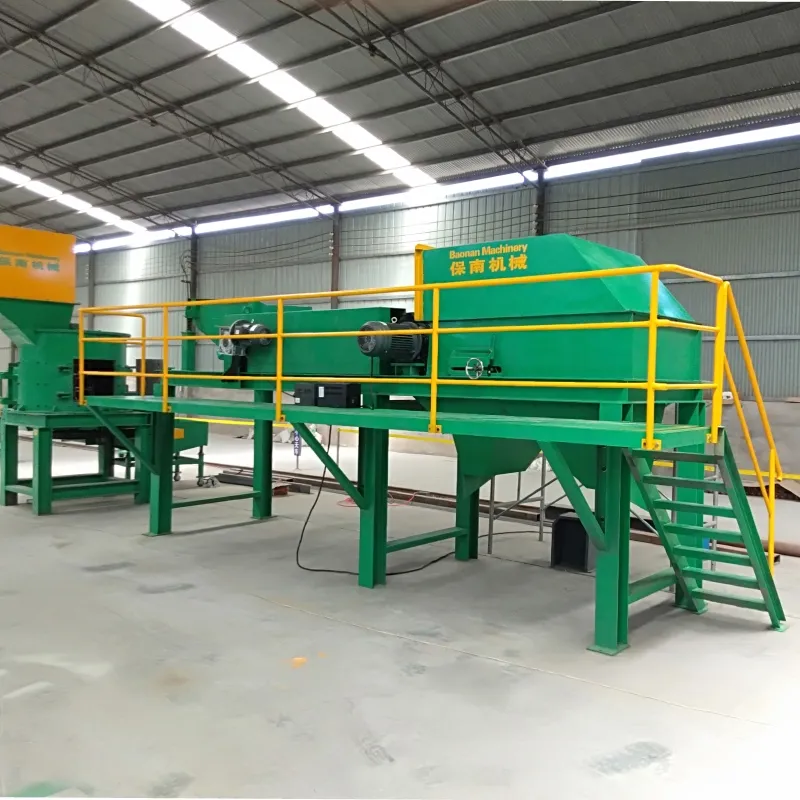

11月 . 10, 2024 20:49 Back to list
The Future of Aluminium Scrap Recycling Plants
Aluminium, a versatile and widely used metal, plays a crucial role in various industries, from automotive to aerospace and packaging. As the demand for aluminium continues to grow, so does the need for efficient recycling systems. Aluminium scrap recycling plants are at the forefront of this movement, transforming discarded aluminium into valuable resources while addressing environmental concerns.
Understanding Aluminium Scrap Recycling
Aluminium recycling involves the process of collecting and processing scrap aluminium to produce new aluminium products. Unlike primary aluminium production, which is energy-intensive and requires significant raw materials, recycling aluminium consumes only about 5% of the energy needed to create it from bauxite ore. This substantial reduction in energy consumption not only lowers greenhouse gas emissions but also conserves natural resources, making it an environmentally friendly choice.
The Process of Recycling Aluminium Scrap
The recycling process begins with the collection of aluminium scrap, which can come from various sources including old vehicles, packaging materials, and construction debris. Once collected, the scrap is sorted to remove non-aluminium materials. Modern recycling plants use a combination of manual sorting and advanced technologies, such as infrared sensors and magnets, to ensure a high purity of aluminium for the recycling process.
After sorting, the aluminium is shredded into small pieces to facilitate the melting process. The shredded scrap is then heated in a furnace, where it is melted down and any impurities are removed. Once purified, the molten aluminium is poured into molds to form ingots, which can be transported to manufacturing facilities for the creation of new products.
The Importance of Aluminium Scrap Recycling Plants

Aluminium scrap recycling plants are vital for several reasons. Firstly, they significantly reduce the need for virgin aluminium production, which is highly energy-consuming and polluting. By recycling aluminium, we reduce the demand for bauxite mining, which can have severe environmental impacts, including habitat destruction and water pollution.
Secondly, these plants create jobs and stimulate local economies. The recycling industry has proven to be a source of employment, ranging from jobs in collection and sorting to those in processing and manufacturing. As the global focus on sustainability increases, more investment is likely to flow into recycling operations, further boosting economic benefits.
Additionally, recycling aluminium aids in achieving circular economy principles. In a circular economy, materials are reused, remanufactured, and recycled, minimizing waste and encouraging sustainable consumption patterns. Aluminium recycling reduces landfill waste and ensures that valuable resources are continually kept in use.
Challenges Facing Aluminium Scrap Recycling
Despite the numerous benefits, recycling aluminium also faces challenges. One significant issue is contamination. If non-aluminium materials are not effectively sorted from the scrap, they can introduce impurities that affect the quality of the recycled aluminium. Advanced sorting technologies and public awareness campaigns about the importance of proper recycling can help mitigate this issue.
Furthermore, the fluctuating market prices for aluminium can impact the economic viability of recycling plants. When prices are low, the incentive to collect and recycle aluminium might diminish, leading to reduced scrap availability. Developing stable systems for supporting recycling operations through policies can help address these fluctuations.
Conclusion
Aluminium scrap recycling plants are essential for creating a sustainable future. They not only conserve energy and resources but also contribute to the local economy and help combat environmental issues related to waste. As technology continues to evolve, these plants will become even more efficient, paving the way for sustainable practices in aluminium use. Embracing and investing in aluminium recycling is not just a choice; it is a critical step toward a more sustainable and responsible world.
Latest news
Troubleshooting Common Eddy Separator Problems
NewsJul.04,2025
The Role of Metal Recycling Plants in Circular Economy
NewsJul.04,2025
The Impact of Recycling Line Pickers on Waste Management Costs
NewsJul.04,2025
Safety Features Every Metal Shredder Should Have
NewsJul.04,2025
How Industrial Shredders Improve Waste Management Systems
NewsJul.04,2025
How Cable Granulators Contribute to Sustainable Recycling
NewsJul.04,2025